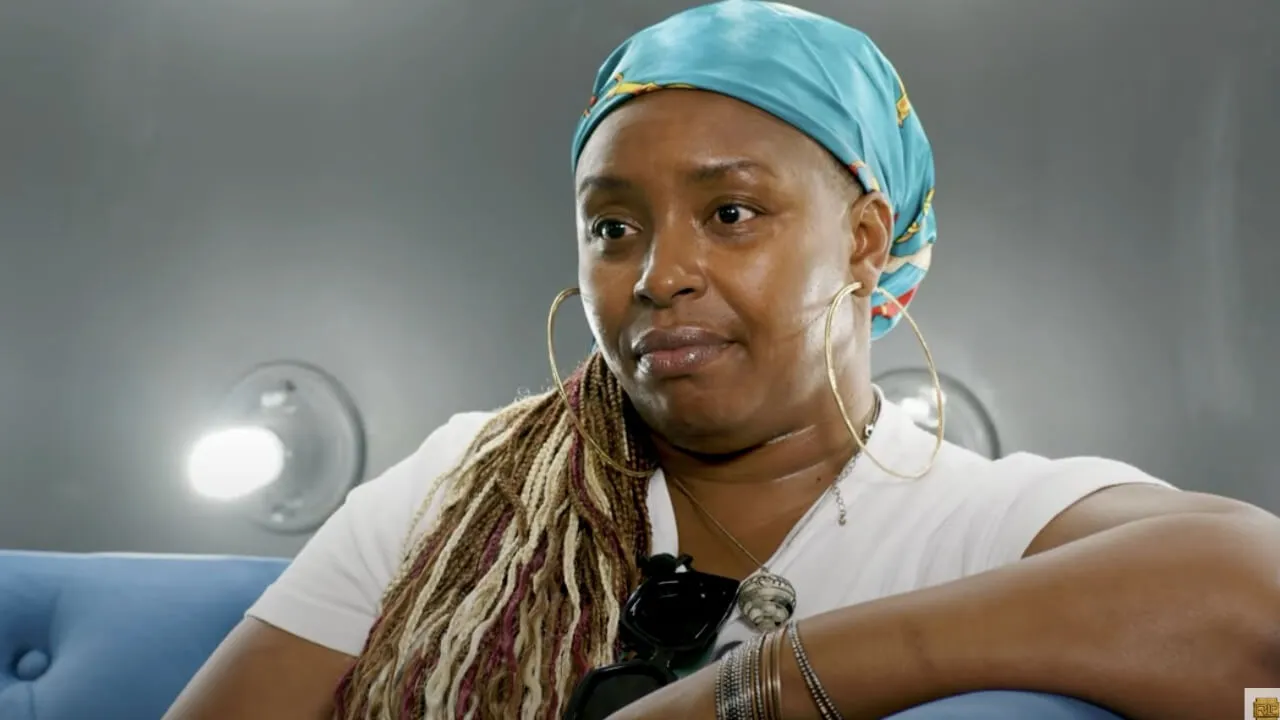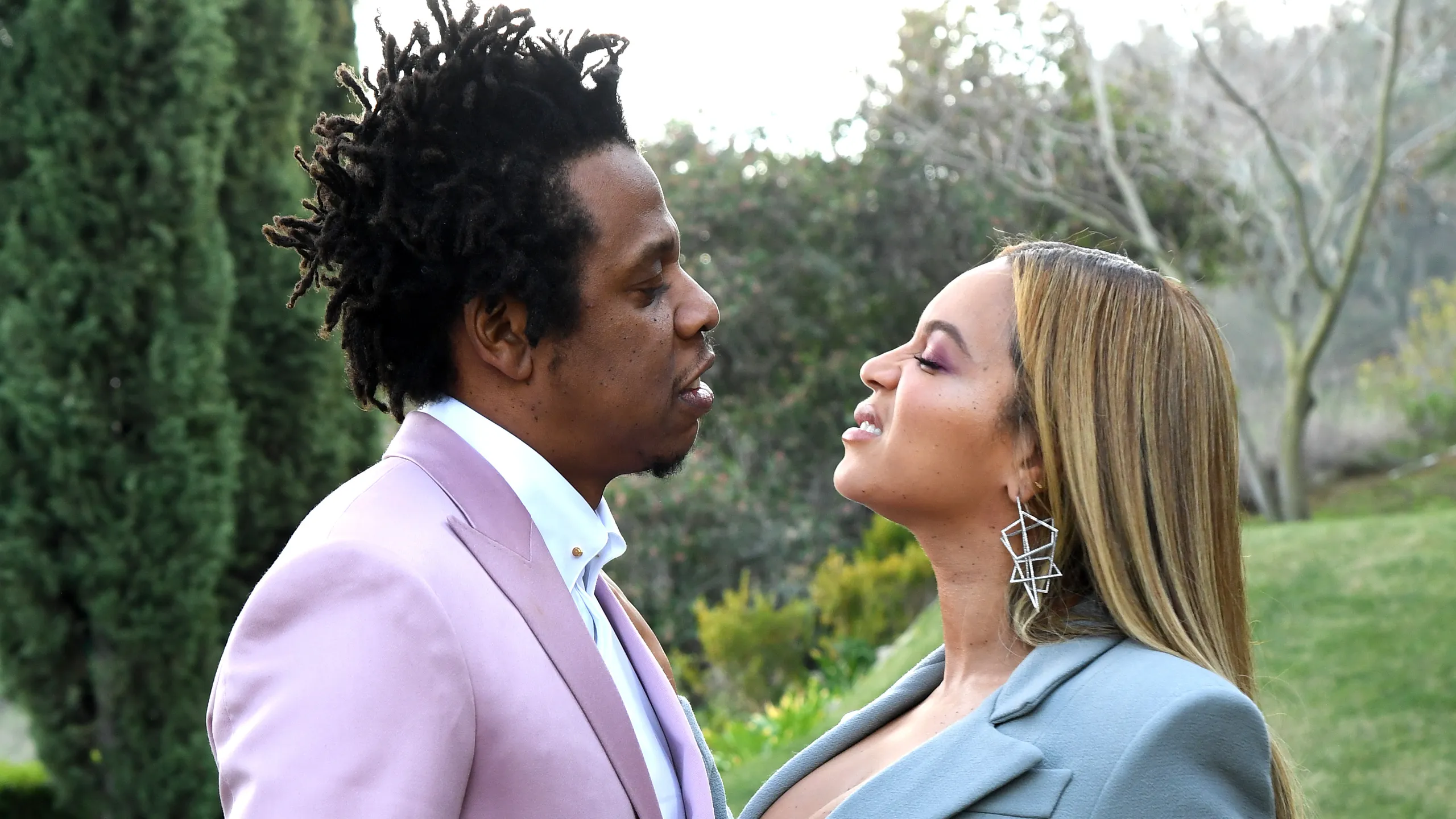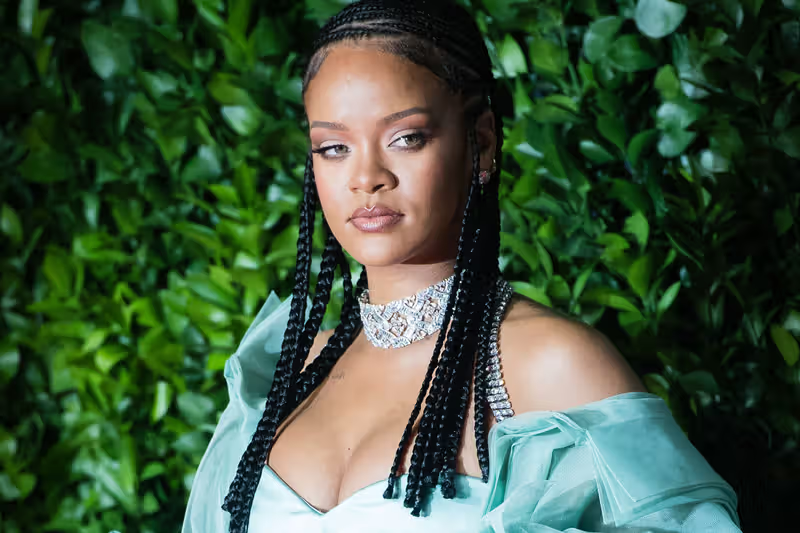Jaguar Wright EXPOSE Diddy 100 Lawsuits, JayZ & Michael Rubin Hosting White Parties WITHOUT Diddy?!

When Jaguar Wright speaks, the industry trembles.
For years, the soul singer turned truth-teller has been one of the loudest, rawest voices exposing the dark corners of the music world. Her interviews—unfiltered, furious, and emotionally charged—have become viral confessions of pain and prophecy. But her latest revelations have gone far beyond gossip.
In a searing, defiant interview, Wright tore into the culture of silence that she says has protected predators for decades. “I’m hoping those hundred civil cases don’t just stay civil,” she said, her voice shaking with anger. “They should be criminal. Because I got a big issue with everyone thinking money is the end-all be-all to stopping a predator. It is not. That’s not real life.”
And she wasn’t done.
According to Wright, the trial of music mogul Sean “Diddy” Combs, convicted under the federal Mann Act for trafficking-related crimes, was just “a show”—a carefully staged performance meant to pacify the public while the real machine kept running. “This was all done to get people like me to be quiet,” she said. “This ain’t even about Diddy. It’s about the rest of them.”
“They’re Still Having White Parties”
Then came the bombshell.
“You know they’re still having white parties?” Wright asked incredulously. “Michael Rubin is throwing them now.”
Her tone was pure disbelief—half accusation, half lament. The “white parties,” lavish all-white dress affairs once hosted by Diddy in the Hamptons, had become cultural legend—celebrity heaven for the rich and powerful. They were rumored to be both glamorous and deeply sinister, a place where money and power danced too closely with indulgence.
Wright connected the dots in real time: “You know who Michael Rubin’s close with, right? Mr. Carter. Jay-Z.”
For Wright, that connection was more than symbolic. In her eyes, the cycle was continuing—just with new names, new hosts, and the same dark energy. “We went from Diddy’s camp throwing the white parties to now Jiggaman’s camp throwing the white parties. Interesting,” she said flatly.
Her point was clear: the machine doesn’t stop—it just changes hands.
The Price of Silence

Jaguar Wright’s anger has always been personal.
In her view, Cassie Ventura’s $30 million settlement against Diddy wasn’t justice—it was hush money. “Still not enough,” she said bluntly. “Her life is never going to be the same. People are going to find ways to make her life complicated, to force her to spend that $30 million every way they possibly can.”
Wright’s frustration runs deeper than one victim’s case. To her, settlements are a bandage on a wound that needs surgery. “Why do so many of these cases stay civil?” she asked. “Why aren’t they turned criminal when there are criminal acts all through the pages?”
She compared it to the O.J. Simpson case: “The Simpsons family took him to civil court after he was acquitted criminally. It can go either way. But if you’ve got criminal acts in a civil proceeding, that doesn’t mean they shouldn’t be tried criminally. Just because someone gets paid doesn’t mean the crime disappears.”
In her mind, every payout is a silencer—and every silence protects another abuser.
“This Was All for the Public’s Entertainment”
When asked if she thought the Diddy trial should’ve been televised on Court TV, Wright shrugged off the idea. “It don’t matter,” she said. “This trial, the sentencing, the verdict—all the pomp and circumstance—it means nothing. This was all done for the public’s entertainment.”
To her, justice was never the point. The spectacle was. “They did this to get the public to not believe whistleblowers like me,” she said. “This ain’t justice. It’s distraction.”
Her voice dropped to a near whisper. “They think money can wash away what they did. But God said no.”
“God Told Him: Sit Down.”
Wright’s words turned spiritual when she spoke about Diddy’s downfall.
“They say he had speaking engagements lined up a week after he was supposed to walk free,” she said. “God said no. God told him, ‘Sit your black ass down.’”
For Wright, this wasn’t just karma—it was divine intervention. “He’s been working for Satan for a long time,” she said, describing Diddy as “a shepherd for the devil.”
Then she dropped another revelation: a Florida charter school had allegedly invited Diddy to speak to students just weeks before his sentencing. “You know what’s crazy?” Wright asked. “He’s on the sex offenders registry list. He’s not even allowed to be around kids—and people wanted to bring him to a school. How?”
Her disbelief boiled over. “You’re going to bring a registered sex offender to talk to children about success? What’s he going to teach them—how to cover up crimes?”

“He Might Be Out by Christmas”
Despite Diddy’s conviction, Wright doesn’t believe he’ll serve much time. “They say with points and time served, he might be out by Christmas next year,” she said, shaking her head. “People say a lot of things, though. They said he was going to get bail. How did that work? They were planning Fourth of July parties after the verdict. How did that work? People say a lot of things—they just don’t hear God say no.”
Turning Anger Into Purpose
Still, beneath Wright’s rage lies a core of empathy—for victims, for survivors, and even for those still trapped inside the machine.
“What I’m praying for,” she said, “is that real victims, real survivors actually get the attention they deserve. That they get the justice they deserve. I’m praying that Derek”—a reference to former artist Derek Lee Cordell Smith, allegedly wrongfully imprisoned—“can get out of jail and collect what’s owed to him.”
Wright said she plans to use her platform to amplify stories like his. “I’m hoping the interview I do with him gets enough traction for there to be a doorway open,” she said. “I’m hoping those other hundred civil cases get turned into criminal cases. Because predators don’t stop operating just because you write them a check.”
“Stop Wanting to Be Down.”
When asked if there’s a lesson for the next generation, Wright didn’t hesitate.
“Stop being so anxious to be a follower,” she said. “Stop wanting to be down. We got too many people that want to be around all this stuff, that want to be part of it. We already know what’s right and wrong. But as long as there’s enough money to throw at it, people act like wrong can turn into right.”
Her tone was part preacher, part street poet. “That’s the real sickness in this industry,” she continued. “People would rather be next to power than stand up to it.”
The New Gatekeepers
For Wright, the story doesn’t end with Diddy’s conviction. It’s about who’s next in line.
She accused the culture’s elite—names like Jay-Z and billionaire entrepreneur Michael Rubin—of keeping the same world spinning. “The white parties didn’t stop,” she said again. “They just got new hosts. You can change the music, but the song stays the same.”
Wright described the parties as symbols of excess and hypocrisy—beautiful on the outside, rotten underneath. “It’s all about illusion,” she said. “They wear white to look pure. But nothing about it is pure.”

“There Was Never a Music Career.”
When the conversation turned to whether Diddy could rebuild his career after prison, Wright laughed bitterly. “What career? What instrument does he play? What does he know about music?”
She didn’t wait for an answer. “He knows nothing. He was never an artist. He was a collector—a collector of hungry and desperate people who wanted to use their god-given gifts. He took advantage of them, then plastered his name all over everything they built.”
Her voice trembled with rage. “The only thing he’s ever been talented at is hurting people and destroying lives. That’s his real art form. That’s what he’s mastered.”
The Message Beneath the Madness
To her critics, Jaguar Wright is loud, erratic, and unpredictable. But beneath the fire and fury lies a consistent truth: she’s tired of watching powerful men buy silence.
Her stories have stirred fear and fascination, painting a picture of an industry where justice is a brand and redemption is a lie. And while some dismiss her as too extreme, others whisper that she’s saying what insiders won’t dare admit.
“People think I’m crazy,” Wright said with a weary smile. “But crazy is just what they call women who tell the truth.”
The Final Word
As she wrapped the interview, her voice softened. “I don’t know what’s going to happen to him,” she said of Diddy. “I’m not even trying to guess. What I am praying for is that people finally wake up. That the real victims get their justice. Because this ain’t about one man—it’s about a whole system.”
Then, almost like a preacher closing a sermon, she delivered her final line with quiet conviction:
“Money can’t save you from God’s judgment.
And it damn sure can’t buy back the souls you’ve broken.”




